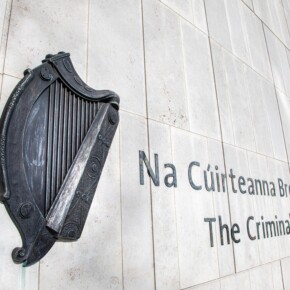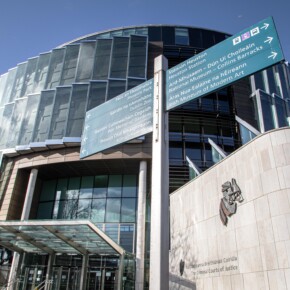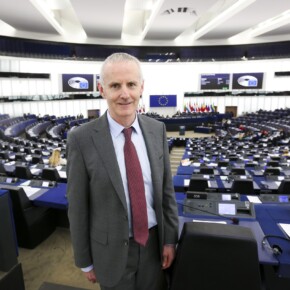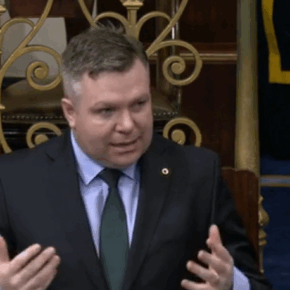Record high number of candidates of a migrant background elected in local elections
Padraig Conlon 12 Jun 2024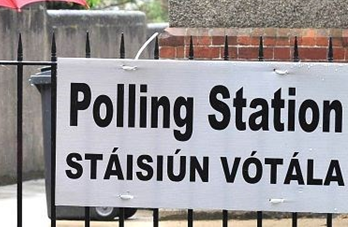
This year’s local election saw not only a doubling of the number of migrant candidates running than in 2019, but now also double the amount of migrant candidates getting elected to city and county councils across the country.
With 21 candidates of a migrant background being elected, up from 9 in the 2019 election, this election sees the greatest ever number of candidates from a migrant background put themselves to
the electorate and seek to contribute to the community around them in local politics and successfully get elected.
The run up to this election was filled with divisive messages similar to the anti-migrant movements have employed in other countries, however the results of this election clearly demonstrate that the voting public understand the extraordinary positive benefit that migration brings to Ireland in cultural, social, political and economic terms.
Speaking about the results, Teresa Buczkowska, Political Participation Coordinator, Immigrant Council of Ireland stated: “We are an inclusive democracy, and with the election of 21 candidates
from a migrant background our democracy is getting more representative and stronger.
“However, much work remains to make local and national politics truly representative of the reality that is the diverse Ireland we all call home.
“While candidates of a migrant background made up approximately 5% of the candidates running in the election, they will only make 2.2% of the elected representatives.
“This is a statistic that we hope will continue to improve over the coming election cycles and the Immigrant Council of Ireland is committed to working with migrant communities on political
participation.”
While it is true to say that there is no exact formula for ensuring that someone will get elected, there are a couple of factors that can greatly increase or decrease a candidate’s likelihood to fair well in an election.
This includes whether candidates are running as part of a party ticket or not, whether a candidate has run before or not and specifically in the case of candidates with a migrant background,
whether they are running in an urban or rural area.
In this election there were some key changes in the demographics of who has run in this election versus the 2019 election, as highlighted by the Immigrant Council in May 2024.
Notably was the increased number of candidates of a migrant background running as part of a political party, rather than as independents.
In 2019 over half of all migrant candidates ran as independents, while in this election cycle independent candidates only make up a third of all migrant candidates.
As well as this 81% of the candidates of a migrant background running in this election were first time candidates.
The results show that:
– 10 out of 12 incumbent candidates of a migrant background have been re-elected
– 11 candidates of a migrant background running for the first time have been elected
– All candidates of a migrant background elected ran as part of a political party.
As in 2019, no independent candidates have been elected.
– 52% of elected Councillors of a migrant background are women.
Unfortunately, it has been noted that election candidates overall experienced a high level of violence or hatred on their campaign trail and for candidates of a migrant background 1 in 3 were targeted.
Speaking about this worrying trend Valeria Aquino, Integration Manager, Immigrant Council of Ireland noted: “Candidates of a migrant background have been subject to a lot of violence and hatred in this election cycle.
“Whether that was threatening messages on social media, threats of violence when canvassing, theft of damage to election posters.
“All of it makes it more difficult for candidates from a migrant background to feel safe and confident to run.
“We need to take this seriously as a society, what these types of attacks mean for our democracy.
“We also need to see the government take this seriously and among other steps, to progress the Criminal Justice (Incitement to Violence of
Hatred and Hate Offences) Bill that has been stalled for too long and implement the recent recommendations of the Taskforce on Safe Participation in Political Life.
“Our communities cannot wait any longer for this vital legislation.”
Looking to where we go from here, Brian Killoran, CEO, Immigrant Council of Ireland said: “With the local elections behind us, we now must set our sights on the next General Election.
“The temptation of divisive messaging on migration must be categorically rejected by the political establishment and voters going forward.
“Allowing negative, dehumanizing attitudes towards migrants risks opening a Pandora’s Box that damages not only migrant communities themselves but communities overall.
“The issues we face as a country are in housing, healthcare, cost of living – migrant communities are subject to those pressures too, as all are, but are not the cause of those issues as some would have the public believe.
“That there are challenges for all European countries in supporting the needs of migrant communities and international protection applicants is undeniable, however the answer is never
found in vilifying those communities and treating them as less than human.
“The answer is leadership – in local government, in national politics, and in communities – to appropriately address the needs of a growing population.
“We are, and always will be, in this together – and we achieve progress by working collaboratively towards the aims of reinforcing human rights, positive democratic inclusion, and healthy communities.”


